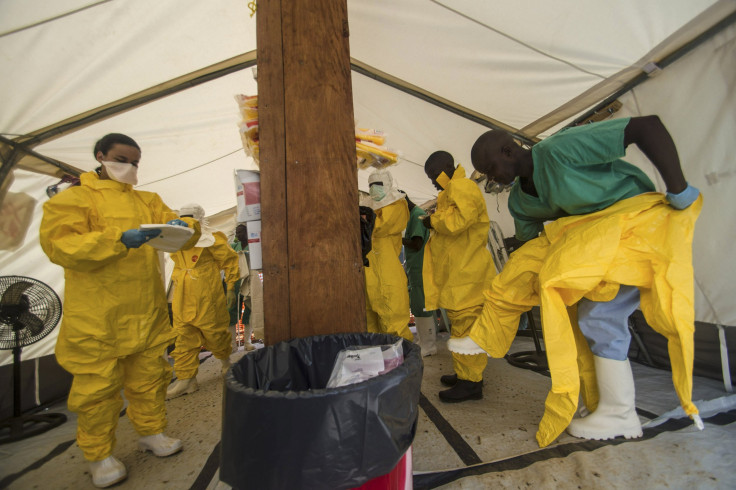Ebola Outbreak Claims 2,000 Victims, Kills More Than Half; Experimental Drugs Are On The Way

The Ebola outbreak in West Africa is completely out of control, and will most likely get much worse before it can get any better. On Wednesday, the World Health Organization (WHO) announced that rates of infection have continued to rise, affecting 1,975 people, with more than half dead.
The numbers come as the WHO, African governments, and other health organizations work frantically to control what has now become the deadliest Ebola outbreak in history. In just the past two days, there were an additional 127 cases and 56 deaths, CNN reported. The majority of the cases have occurred in the West African countries of Guinea, Liberia, Sierra Leone, and Nigeria.
The outbreak is so dire, and health officials are so desperate that the WHO announced this week that experimental drugs — the kind that haven’t been approved, or possibly even tested — could be used ethically to attempt to treat patients suffering from the disease. According to the Los Angeles Times, there are five treatments currently being considered under “compassionate use.” “There was a unanimous agreement among the experts,” said Dr. Marie-Paule Kieny, assistant director-general of health systems and innovation at the WHO, according to the Times. “It is ethical.”
During a news conference, Kieny said that other experts in the field would meet sometime around the end of August to determine which treatments showed the most promise after animal experiments. Really, these are their only options, since supplies of the experimental drug ZMapp, which was used successfully on two American health workers, have been depleted. She said the drugs being considered include three antivirals and two vaccines.
Nevertheless, health workers face an upward battle as the supply of these drugs is uncertain as well. The fact remains that most countries in which Ebola originates have always been too poor to afford the development of drugs to fight it. Out of fear of bioterrorism, many countries began developing treatments. “This is typically a disease of poor people in poor countries where there is no market,” Kieny said. “If it hadn’t been for the investment of a few governments in the development of a vaccine, we would have been nowhere.”
Ebola is a vicious virus. It’s transmitted through bodily fluids and causes fever, headache, a lack of appetite, and sore throats within two to 21 days. Soon after symptoms appear, the virus begins to attack the immune system’s T-cells in a similar fashion to the way HIV works, although it does it much quicker. Within days, the body is aching, and vomiting and diarrhea are a regular occurrence. The virus’s deadliest stage comes soon after, in which the body’s organs begin to fail from the infection, and bleeding occurs both internally and externally until the person dies.



























